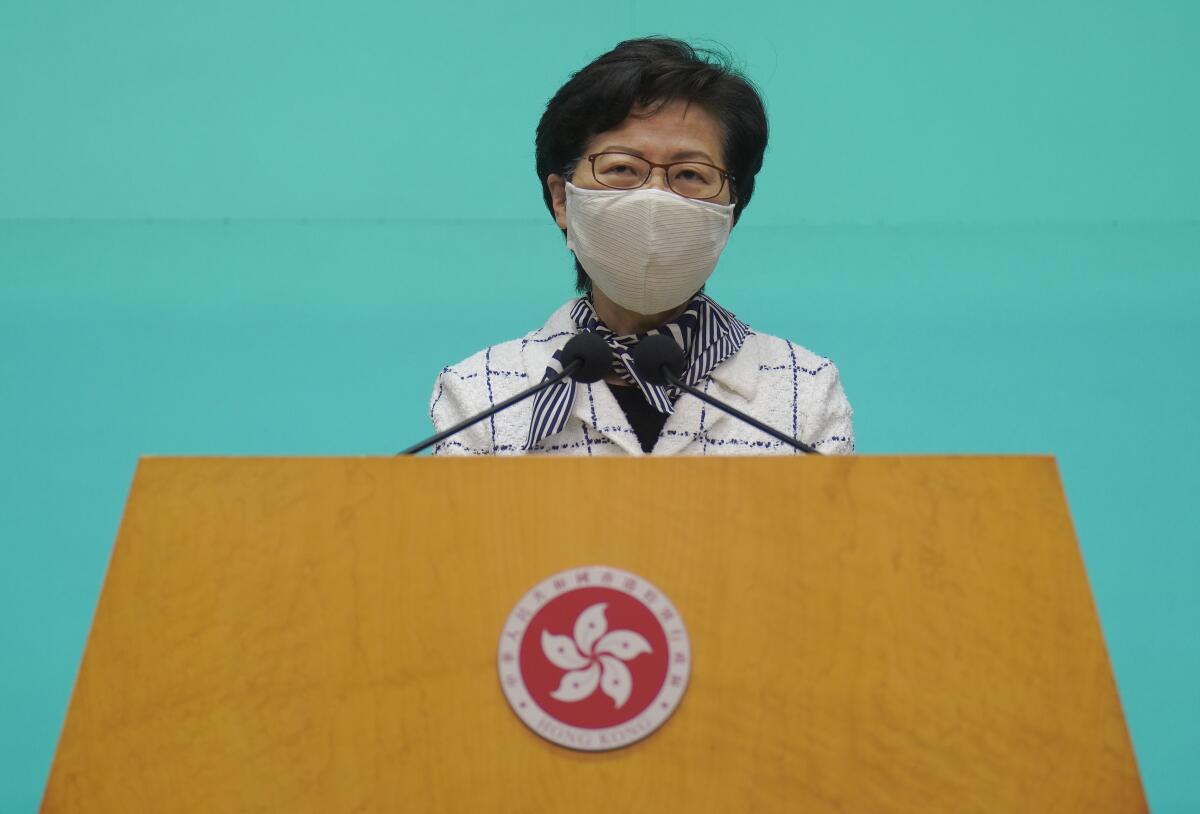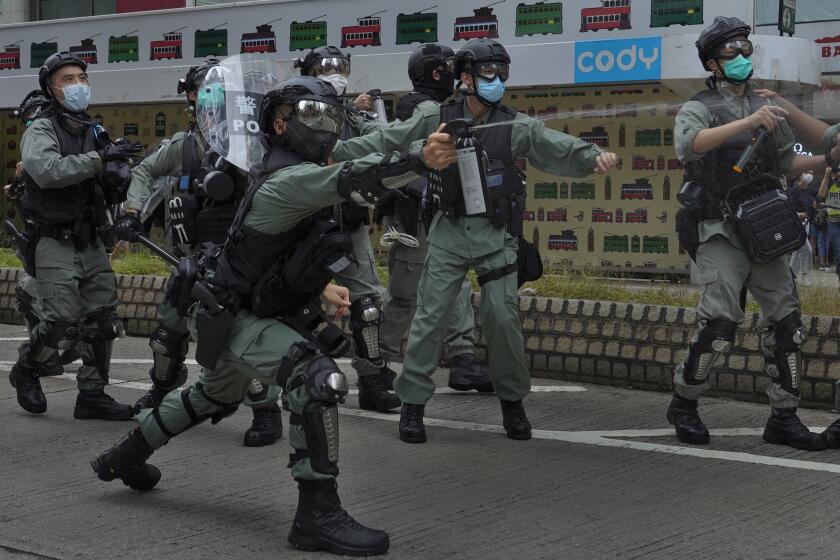China passes draft of controversial Hong Kong national security law

- Share via
BEIJING — China’s legislature Thursday passed a draft of a national security bill for Hong Kong that has been strongly criticized as undermining the semi-autonomous city’s legal and political institutions.
The standing committee of China’s National People’s Congress reviewed the bill, which covers four categories of crimes: succession, subversion of state power, local terrorist activities and collaborating with foreign or external foreign forces to endanger national security.
No details on the definitions of those crimes or the applicable punishments were given. It also wasn’t clear when the law would be passed in its final version, although Beijing has repeatedly said it is determined to press ahead despite the criticism.
The congress moved to enact the legislation at the national level after Hong Kong’s own Legislative Council was unable to do so because of strong local opposition. Critics say it could severely limit free speech and opposition political activity.
Legal experts say Beijing’s justifications for the law are highly debatable.
China acted following widespread and sometimes violent anti-government protests in the territory last year that Beijing saw as a dangerous campaign to split Hong Kong from the rest of the country.
Beijing is using the coronavirus crisis to crush Hong Kong’s demands for more freedom, thinking the world is too busy to care.
The U.S. has said that the law, if passed, will revoke some of the special privileges it grants to Hong Kong after the former British colony was handed over to China in 1997. Britain has said it will offer passports and a path to citizenship to as many as 3 million Hong Kong residents.
Beijing has denounced the moves as interference in its internal affairs.
On Wednesday, the Group of Seven leading economies called on China to reconsider its plans in a joint statement voicing “grave concern regarding China’s decision to impose a national security law on Hong Kong,” adding that it would breach Beijing’s international commitments as well as the territory’s constitution.
“It would jeopardize the system which has allowed Hong Kong to flourish and made it a success over many years,” they said. “Open debate, consultation with stakeholders, and respect for protected rights and freedoms in Hong Kong are essential.”
Breaking News
Get breaking news, investigations, analysis and more signature journalism from the Los Angeles Times in your inbox.
You may occasionally receive promotional content from the Los Angeles Times.
China’s foreign ministry condemned the G-7 statement, accusing the group of “speaking and pointing fingers freely at Hong Kong affairs.”
“We strongly deplore and firmly oppose the joint statement issued by the G-7 foreign ministers,” the ministry spokesperson said at a daily briefing. “China’s determination in promoting the national security law in Hong Kong is unwavering.”
The Asian financial hub’s highly respected legal system already covers security issues from money laundering to terrorism and cybercrime. That leaves the proposed legislation to deal with vaguely defined crimes of a highly political nature along the lines found in mainland China’s Communist Party-dominated system.
Earlier this month, Hong Kong’s legislature approved a contentious bill making it illegal to insult the Chinese national anthem after pro-democracy lawmakers boycotted the vote out of protest.
Senior opposition figures have also been arrested for taking part in demonstrations, and questions have arisen over whether the national security legislation will be used to disqualify pro-democracy candidates in September’s elections for the Beijing-controlled Legislative Council.
More to Read
Sign up for Essential California
The most important California stories and recommendations in your inbox every morning.
You may occasionally receive promotional content from the Los Angeles Times.














